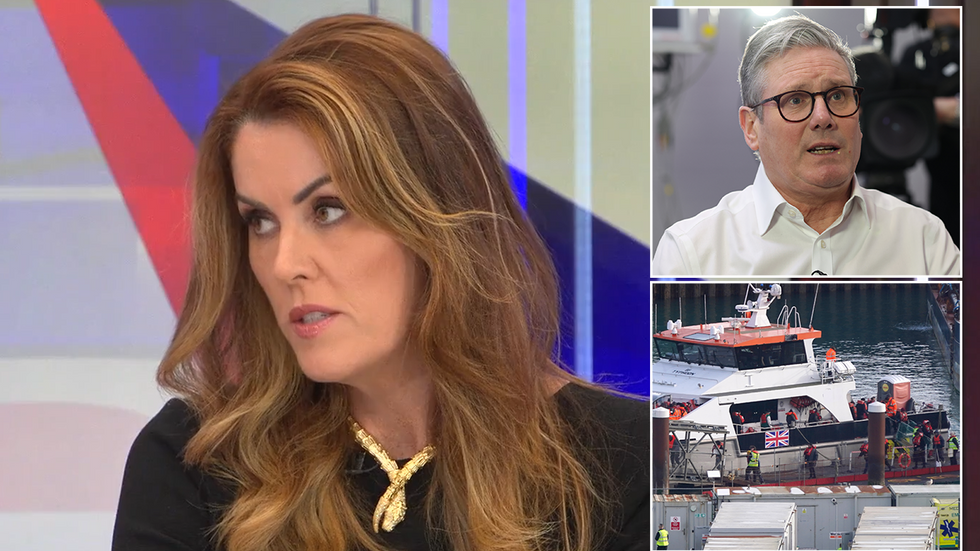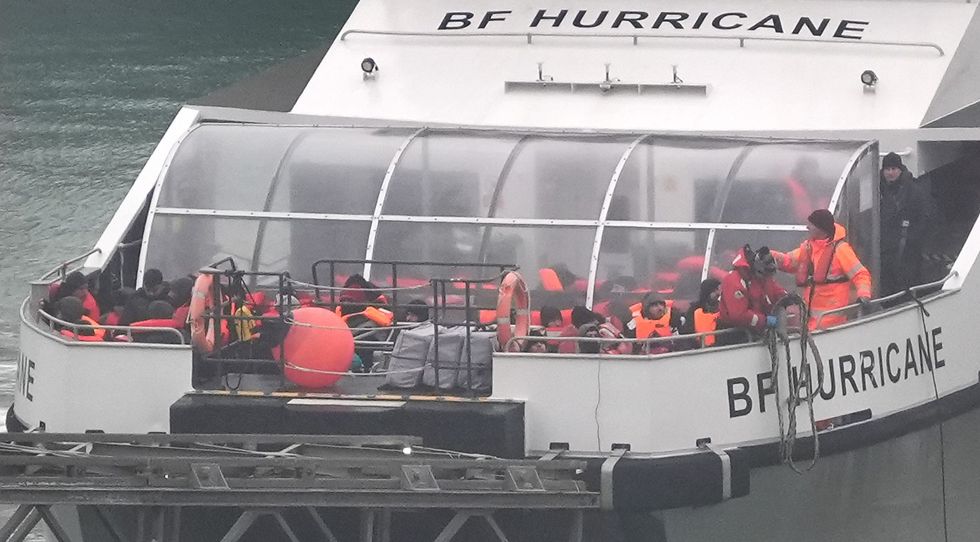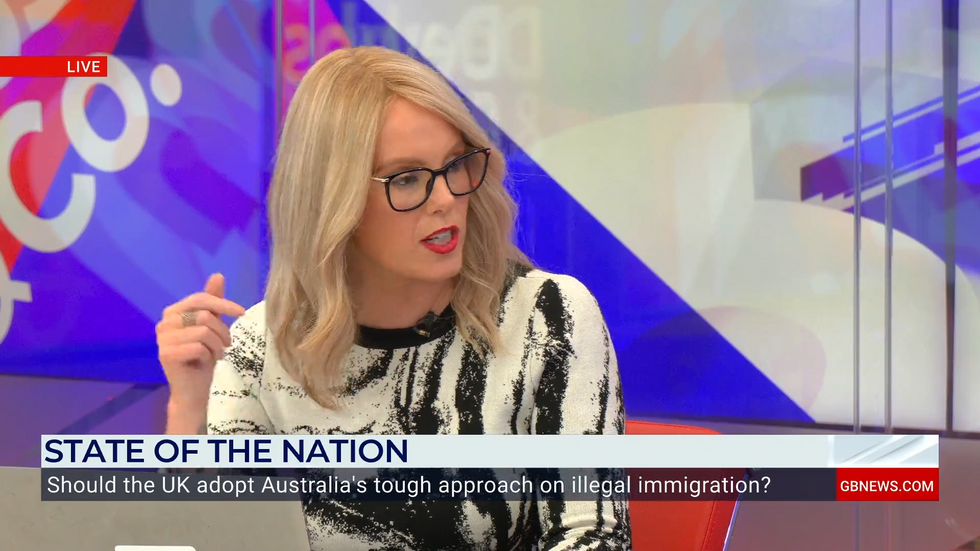Ben Chapman
Guest Reporter
Australian political commentator Peta Credlin has criticised Britain's handling of illegal boat migration, insisting that "political will" is the crucial factor in stopping Channel crossings.
Speaking to GB News, the TV host expressed frustration at Britain's approach, questioning: "Why can't you turn the boats around?"
Credlin, drawing from Australia's successful strategy to combat illegal maritime arrivals, emphasised that effective policies require more than just plans on paper.
Australia's approach consists of three key elements: turning boats around, offshore processing, and temporary protection visas, Credlin said on GB News.

The strategy prevents migrants from establishing permanent settlement, unlike the current situation where people crossing from France can build a life in Britain.
"There's three elements to it. Turning the boats around, offshore processing and temporary protection visas," Credlin explained to GB News.
LATEST DEVELOPMENTS

Under the Australian system, asylum seekers face no certainty of permanent residency and can be returned to their home countries.
Australia's boat turn-around operations involve direct intervention from military and border forces.
"When the people smugglers scuttled the boats and 30-40 people would end up in the sea, we would take them off their boats and put them in lifeboats that were unsinkable then send them back to Indonesia," Credlin detailed.
The navy and border protection force actively intercept vessels attempting to reach Australian shores.

This approach demonstrates a robust physical response to attempted crossings, with authorities prepared to transfer migrants to safety while ensuring their return.
Australia's offshore processing system, based in Nauru, keeps asylum seekers away from mainland Australia's legal framework.
"They wouldn't come to Australia and trigger all the court and legal obligations," Credlin explained.
The system prevents involvement from what Credlin termed "that activist, parasitic class who helped sponsor them through the courts."
The temporary protection visa programme ensures migrants understand they may be returned to their home countries, with Credlin noting: "You could be left in Australia for a period of time and then you're sent back."
Credlin's message to Britain emphasises that successful migration control requires genuine commitment beyond policy documents.
"I think it comes down to political will. That's the most important thing. It's not like it's a policy you dust off in your bottom drawer and that makes it happen," she told GB News.
Find Out More...
Speaking to GB News, the TV host expressed frustration at Britain's approach, questioning: "Why can't you turn the boats around?"
Credlin, drawing from Australia's successful strategy to combat illegal maritime arrivals, emphasised that effective policies require more than just plans on paper.
Australia's approach consists of three key elements: turning boats around, offshore processing, and temporary protection visas, Credlin said on GB News.

The strategy prevents migrants from establishing permanent settlement, unlike the current situation where people crossing from France can build a life in Britain.
"There's three elements to it. Turning the boats around, offshore processing and temporary protection visas," Credlin explained to GB News.
LATEST DEVELOPMENTS
- Asylum seeker who sexually assaulted teenager cannot be jailed as it would breach his human rights
- Albanian immigrant bought inflatable kayak from Halfords to help migrants cross the Channel
- Asylum seeker allowed to stay after mum refused to provide ID claiming he's at risk over car repair

Under the Australian system, asylum seekers face no certainty of permanent residency and can be returned to their home countries.
Australia's boat turn-around operations involve direct intervention from military and border forces.
"When the people smugglers scuttled the boats and 30-40 people would end up in the sea, we would take them off their boats and put them in lifeboats that were unsinkable then send them back to Indonesia," Credlin detailed.
The navy and border protection force actively intercept vessels attempting to reach Australian shores.

This approach demonstrates a robust physical response to attempted crossings, with authorities prepared to transfer migrants to safety while ensuring their return.
Australia's offshore processing system, based in Nauru, keeps asylum seekers away from mainland Australia's legal framework.
"They wouldn't come to Australia and trigger all the court and legal obligations," Credlin explained.
The system prevents involvement from what Credlin termed "that activist, parasitic class who helped sponsor them through the courts."
The temporary protection visa programme ensures migrants understand they may be returned to their home countries, with Credlin noting: "You could be left in Australia for a period of time and then you're sent back."
Credlin's message to Britain emphasises that successful migration control requires genuine commitment beyond policy documents.
"I think it comes down to political will. That's the most important thing. It's not like it's a policy you dust off in your bottom drawer and that makes it happen," she told GB News.
Find Out More...
